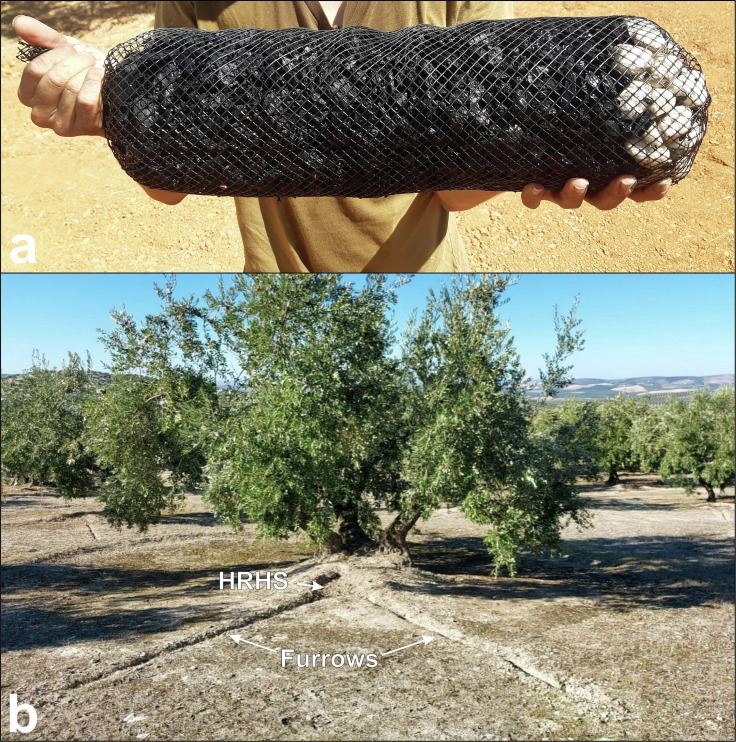The current effects of climate change are characterised by long periods of high temperatures and sudden, short periods of heavy rain but overall reduced annual rainfall. These effects are having a severe impact in all areas of agriculture. On Lesvos, as well as in other areas of the Mediterranean region, this impact is particularly evident in olive oil production which this year is expected to be much reduced.
A group of scientists from Madrid and Granada in Spain have been investigating ways of utilising scarce water resources in order to improve olive yields in semi-arid areas of southern Spain where the average rainfall is about 450mm per year. Similar levels have been recorded in the Vrisa area in recent years (see xls spreadsheet here).
The scientists investigated the application of what they call a Hydroinfiltrator Rainwater Harvesting System (HRHS). Using the natural slope of the olive grove, water is channeled through furrows into a catchment area around each tree. The HRHS consists of a cylindrical net-like shell filled mainly with biochar. This is placed half-buried in the soil around the tree and facilitates the infiltration of rainwater (or irrigation or runoff water) deep into the soil.

Under the experimental conditions, the soil moisture at 20 cm depth was 2.97 times higher for the trees with the HRHS than for the trees in the control plots where the system was not installed. In addition, olive production increased by 211% and was higher in fat yield by 177%.
The system has been patented in Spain and it will be interesting to see if the initial encouraging results can be maintained in the longer term and in other areas with different soil types, terrains, varieties etc.
The original article is open access and can be seen here.
